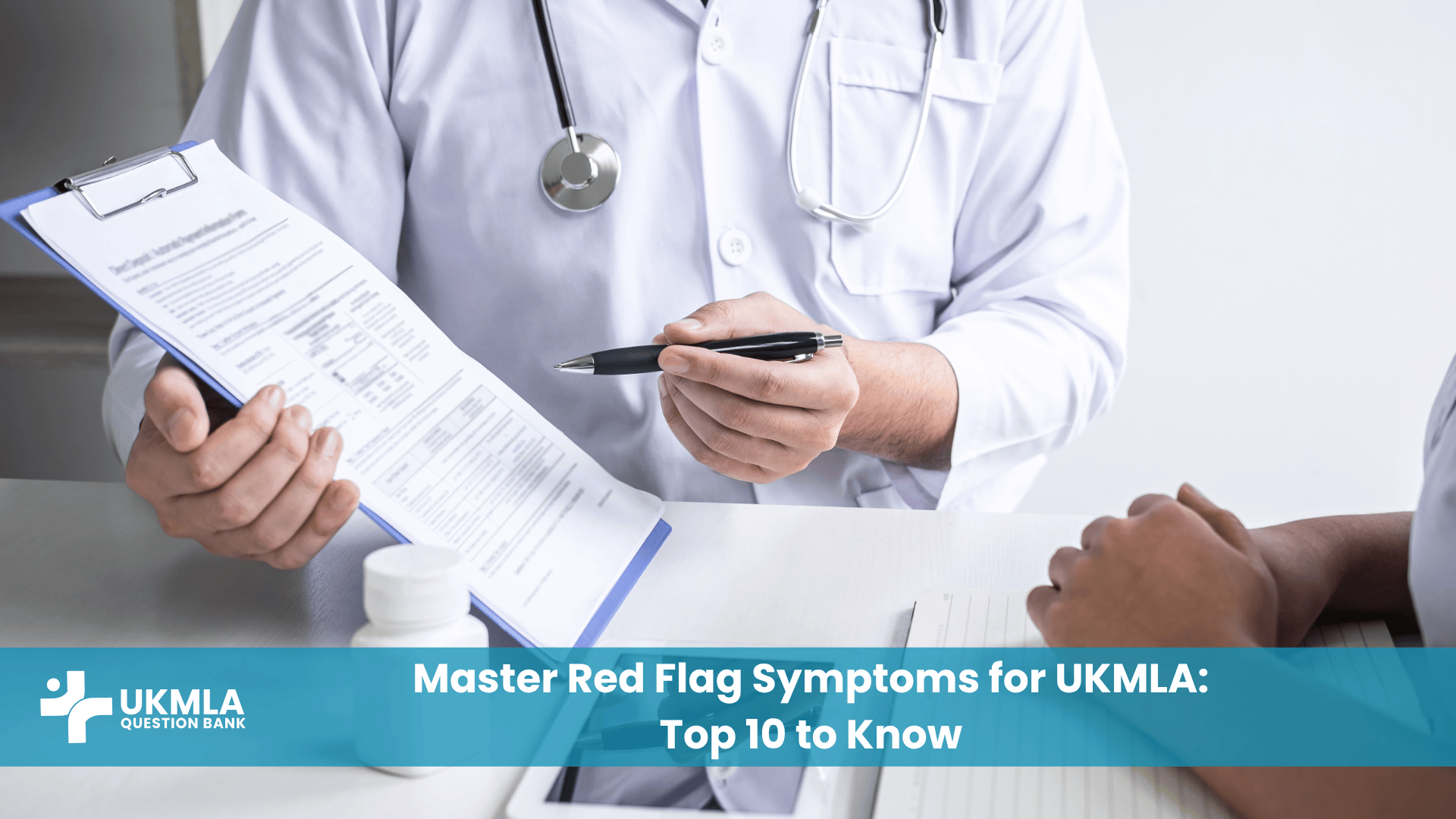Introduction
Effective UKMLA mental health support begins not with a crisis, but with a conscious decision to build psychological strength as a core component of your exam preparation. The journey to becoming a doctor is a marathon of immense intellectual, emotional, and psychological demand. The UKMLA is a critical checkpoint in that marathon, and preparing for it tests your resilience as much as it tests your clinical knowledge. To neglect your mental wellbeing during this period is not just a personal risk; it’s a strategic error that can undermine your ability to perform at your peak.
This guide is designed to shift the conversation from simply ‘coping’ with stress to proactively ‘building’ mental strength. We will provide a robust framework based on five essential pillars of psychological fortitude. These are not abstract concepts but practical, trainable skills that will enable you to navigate the pressures of the UKMLA with greater focus, calm, and confidence. By investing in these pillars, you are investing in your long-term career, ensuring you have the internal resources to thrive, not just survive.
Table of Contents
ToggleWhy Mental Strength is Non-Negotiable for the UKMLA
The medical profession is undergoing a crucial culture shift. The outdated notion of the “unflappable doctor” who simply endures immense pressure without support is being replaced by a more sustainable and realistic model—one that recognises mental fitness as a professional competency.
Moving Beyond “Toughing It Out”: The Modern Doctor’s Toolkit
“Toughing it out” is not a strategy; it’s a gamble with your wellbeing and career. The immense pressure of the UKMLA can lead to burnout, decision fatigue, and memory impairment. True strength lies not in ignoring these pressures, but in developing the skills to manage them effectively. This means building a toolkit of psychological strategies that allow you to maintain high performance under pressure without sacrificing your health. It’s about being a resilient professional, not an emotional stoic.
The Link Between Mental Fortitude, Performance, and Patient Safety
Your mental state has a direct and measurable impact on your cognitive abilities. Excessive stress releases cortisol, which can impair the function of the prefrontal cortex—the part of your brain responsible for executive functions like reasoning, problem-solving, and memory recall. When your mental resources are depleted by stress, you are more likely to make errors in judgement. Therefore, managing your mental state is not an indulgence; it’s a critical aspect of ensuring you are fit to practice. For many, this starts with understanding how to manage UKMLA exam anxiety, which is a key symptom of overwhelming pressure.
The 5 Pillars of Mental Strength: Your Essential Framework
Mental strength is not an innate trait but a set of skills that can be learned and honed. This framework provides five core pillars to focus your development on during your UKMLA preparation.
Table 1: Overview of the 5 Pillars of Mental Strength
| Pillar | Core Principle | Key Action |
|---|---|---|
| Psychological Flexibility | The ability to adapt your thoughts and behaviours to the demands of a situation. | Practice accepting uncomfortable feelings without letting them dictate your actions. |
| Mindful Self-Awareness | The skill of non-judgmentally observing your own mental and emotional state. | Schedule regular “check-ins” with yourself to ask, “What am I feeling right now, and why?” |
| A Resilient Mindset | Viewing challenges and setbacks as opportunities for growth rather than as evidence of failure. | Reframe a poor mock exam score as valuable data that pinpoints areas for improvement. |
| Sustainable Self-Care | Treating rest, nutrition, and exercise as non-negotiable components of your study plan. | Schedule your breaks and time off with the same seriousness as your revision blocks. |
| Structured Connectedness | Proactively building and engaging with a network of supportive peers and mentors. | Initiate a conversation with a peer about a topic you both find difficult to normalise the struggle. |
Pillar 1: Psychological Flexibility – The Ability to Adapt and Pivot
This is the capacity to stay present and open to your experiences—good or bad—and to act in a way that aligns with your values. A rigid mindset snaps under pressure; a flexible one bends. For a UKMLA candidate, this means accepting that you will have bad study days, feel overwhelmed, or get questions wrong, and not allowing those moments to derail your entire plan. It’s about feeling the disappointment of a poor mock score but choosing to stick to your study schedule anyway.
Pillar 2: Mindful Self-Awareness – Recognising Your Early Warning Signs
You cannot manage what you do not measure. Mindful self-awareness is your internal diagnostic tool. It’s the practice of paying attention to your thoughts, feelings, and physical sensations without judgment. This allows you to spot the early warning signs of burnout—such as increased irritability, poor sleep, or difficulty concentrating—before they become a crisis. By recognising these signs, you can intervene early by adjusting your study plan, taking a needed break, or seeking support.
Pillar 3: A Resilient Mindset – How to Frame Setbacks as Feedback
A resilient mindset, often called a “growth mindset,” is the belief that your abilities can be developed through dedication and hard work. It reframes challenges as opportunities to learn. This is a direct antidote to the catastrophic thinking that often accompanies exam pressure. A failed mock exam is not a verdict on your competence; it is simply data that highlights your current knowledge gaps. A core part of building this mindset is learning to overcome the persistent self-doubt of imposter syndrome, which thrives on framing every setback as proof of inadequacy.
Pillar 4: Sustainable Self-Care – Building Your Foundational Defence
In medicine, self-care is not an indulgence; it is a professional and ethical obligation. You cannot provide effective care to others if you are running on empty. Sustainable self-care involves building the non-negotiable foundations of wellbeing into your life:
Sleep: Prioritise 7-9 hours for memory consolidation and cognitive function.
Nutrition: Fuel your brain with stable energy sources.
Movement: Use physical exercise as a powerful tool to manage cortisol and improve mood.
Rest: Schedule genuine downtime where you are not thinking about medicine.
Effective self-care often requires excellent time management, which is why balancing UKMLA prep with life is a skill in itself.
Pillar 5: Structured Connectedness – The Myth of the Lone Genius
The pressure of the UKMLA can be incredibly isolating, fostering the myth that you have to face it alone. This is a dangerous falsehood. Structured connectedness means proactively building and maintaining a support network. This includes peers who can normalise your struggles, mentors who can provide perspective, and friends and family who can offer support outside of medicine. Sharing your challenges reduces their emotional weight and combats the sense of isolation that can be so damaging to mental health.
“The most resilient doctors are not those who never struggle, but those who build a robust network and have the self-awareness to lean on it when they need to. Seeking support is a sign of professional competence.” – Senior Medical Educator
Applying the Pillars: Practical Scenarios in UKMLA Prep
Knowing the pillars is one thing; applying them is another. Here’s how you can use the framework to navigate common challenges.
Table 2: Applying Mental Strength Pillars to Common UKMLA Challenges
| Challenge | Unhelpful (Rigid) Response | Helpful (Pillar-Based) Response |
|---|---|---|
| You score significantly lower than expected on a mock exam. | “This proves I’m not smart enough. I’m going to fail.” (Catastrophic Thinking) | (Pillar 3: Resilient Mindset) “This score is disappointing, but it’s just data. It gives me a clear, objective list of topics to focus on over the next two weeks.” |
| You feel completely overwhelmed by the sheer volume of the GMC content map. | “I’ll never learn all of this. It’s impossible. I might as well give up.” (All-or-Nothing Thinking) | (Pillar 1: Psychological Flexibility) “I accept that I feel overwhelmed right now. It’s a normal response. I will focus only on today’s scheduled topic and trust the process of my study plan.” |
| You notice you’ve been irritable with friends and are struggling to sleep. | “I just need to push through. I don’t have time to be tired.” (Ignoring Warning Signs) | (Pillar 2: Mindful Self-Awareness) “I’m noticing signs of burnout. I will take my scheduled evening off completely and ensure I get 8 hours of sleep tonight to recharge.” |
| A peer seems to be understanding a concept much faster than you. | “Everyone is getting this but me. I’m clearly behind the curve.” (Social Comparison) | (Pillar 5: Structured Connectedness) “I’m struggling with this. I’ll ask my peer if they can explain it to me, or if we can review it together. Their strength can be a resource for me.” |
Formal UKMLA Mental Health Support: Knowing When and Where to Seek Help
Building your own mental strength is crucial, but it is not a replacement for professional help when needed. Knowing how to access formal support is a key part of your toolkit.
Recognising the Threshold for Professional Support
If you are experiencing persistent low mood, overwhelming anxiety, changes in sleep or appetite, or loss of interest in activities you once enjoyed, and it’s impacting your ability to function, it’s time to speak to a professional. Reaching out is a sign of insight and strength. The available UKMLA mental health support services are confidential and designed specifically for medical students and doctors.
Key UK-Based Confidential Resources for Medical Students and Doctors
It’s vital to know that robust systems are in place to help. You are not alone.
The BMA (British Medical Association): The BMA offers a 24/7 counselling service and a peer support service, giving you access to someone who understands the unique pressures you face. You can learn more at their Your Wellbeing hub.
The GMC (General Medical Council): The GMC provides a comprehensive list of wellbeing resources for doctors on their website. This is an excellent starting point for finding the right service for you.
Your University or Medical School: Every university has a dedicated student support service offering confidential counselling. They are your first port of call.
NHS Practitioner Health: This is a free, confidential NHS service for doctors and medical students in England with mental illness and addiction problems.
Accessing these formal UKMLA mental health support channels is a sign of professional responsibility.
Frequently Asked Questions (FAQ) about Mental Health
Normal stress is time-limited, related to a specific stressor (the exam), and resolves after the event. A more serious issue may involve persistent symptoms (lasting weeks), a significant decline in your ability to function (e.g., can’t get out of bed, can’t study at all), and feelings of hopelessness that are not just tied to the exam.
No. Seeking help for mental health is treated like any other health condition. It is confidential. The GMC actively encourages doctors to seek help, viewing it as a sign of insight and a key part of being a safe practitioner. It will not negatively impact your registration unless you have a condition that poses a serious, unmanaged risk to patients.
Strictly scheduling and protecting your time off. This means when you are on a scheduled break, you are truly disengaged from studying—no phone notifications, no “quick revision” sessions. This allows your brain to genuinely rest and recover.
Start with a simple, private, and non-judgmental conversation. A question like, “I’ve noticed you seem a bit down lately, how are you doing?” can open the door. Listen more than you talk, and gently suggest some of the resources mentioned in this article, perhaps offering to look them up together.
Yes, apps like Calm, Headspace (often available with student discounts), and Unmind can be excellent for guided meditation, mindfulness, and sleep stories. For cognitive behavioural therapy (CBT) principles, apps like MindShift CBT can be helpful.
Reframe the purpose of the break. It is not “wasted time”; it is “strategic recovery.” Just as an athlete needs rest days to build muscle, you need downtime for your brain to consolidate information and prevent burnout. A break is an active and essential part of your study plan.
This is highly individual. Some people thrive on the accountability and camaraderie of a group (Pillar 5). Others find it stressful and prefer to work alone. The key is self-awareness (Pillar 2): understand your own needs and honour them, while still making sure not to become completely isolated.
This is a common challenge. Try to be explicit about what you need. Instead of saying “I’m stressed,” try saying, “To be at my best for this exam, I need to protect my sleep, which means I can’t attend late-night events for the next month. Your support in helping me do that would mean a lot.”
Absolutely. A diet high in processed foods and sugar can lead to energy crashes and mood swings. A balanced diet rich in complex carbs, proteins, and healthy fats provides stable fuel for your brain, improving concentration and mood regulation. This is a core part of sustainable self-care (Pillar 4).
The key takeaway is that mental strength is an active process, not a passive state. It requires the same discipline and planning as your academic revision. By focusing on the five pillars, you are building a sustainable foundation for success in the exam and in your future career. The process of getting effective UKMLA mental health support starts with you.
Conclusion: Building a Career, Not Just Passing an Exam
The skills you develop to protect your mental health during your UKMLA preparation are not disposable; they are foundational competencies for a long and successful medical career. The five pillars—Psychological Flexibility, Mindful Self-Awareness, a Resilient Mindset, Sustainable Self-Care, and Structured Connectedness—are the very tools that will help you navigate the challenges of FY1, specialty training, and beyond. They are what transform a good student into a resilient and effective doctor.
Therefore, view this period not just as a hurdle to be cleared, but as a training ground for your professional identity. By intentionally building your mental fortitude, you are ensuring you have the internal resources to perform at your best on exam day and to thrive in the demanding but rewarding career that follows. To continue building this essential part of your toolkit, explore how to cultivate the winning mindset for UKMLA success.




